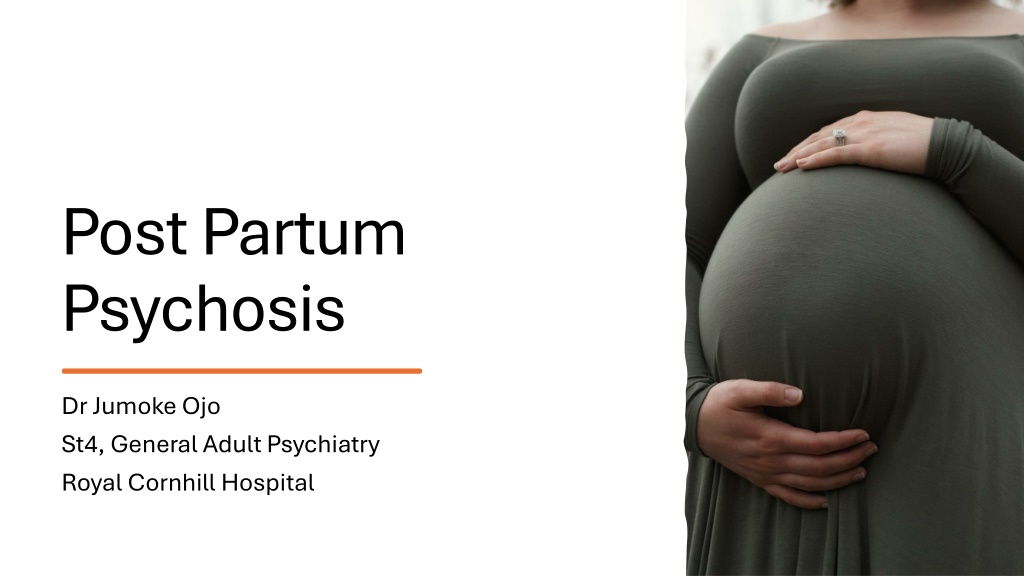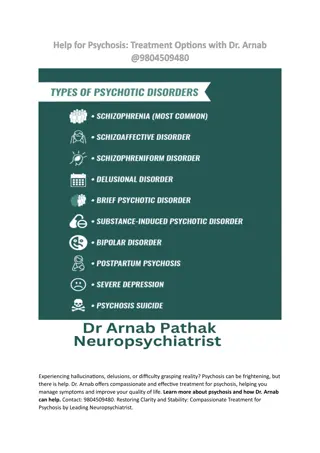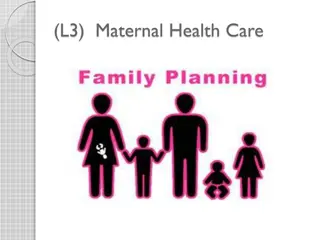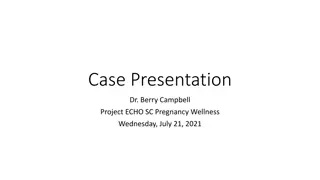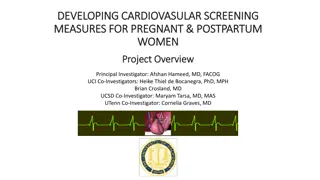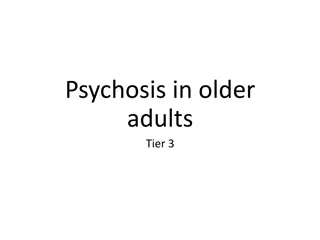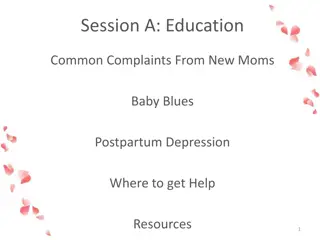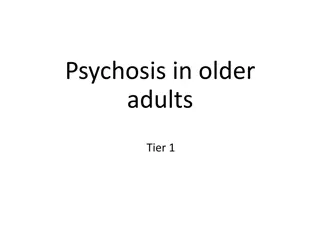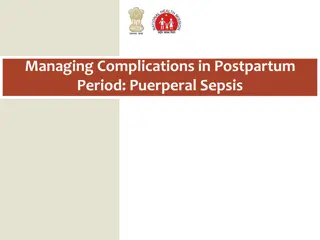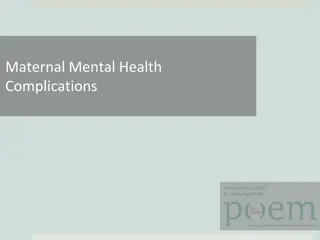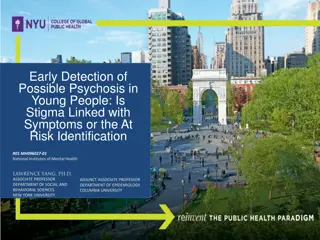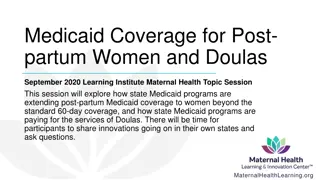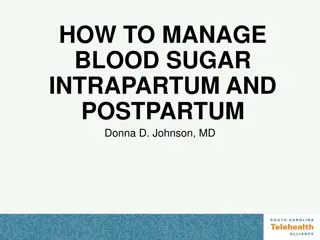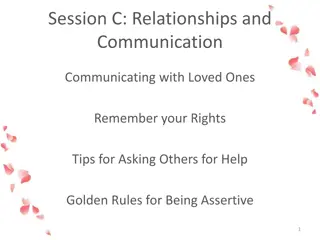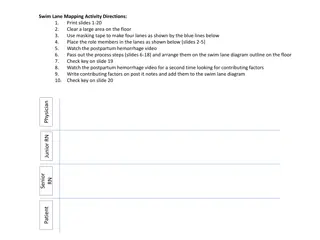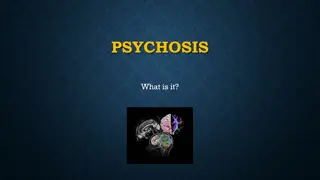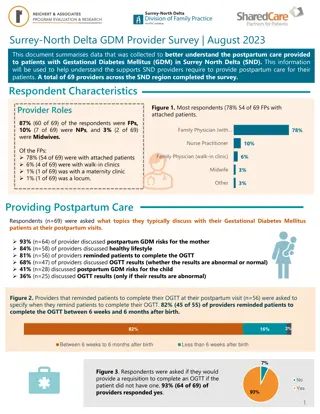Managing Postpartum Psychosis: A Case Study
Cynthia, a new mother, believes her baby, Damien, is possessed by the devil. She expresses delusions and hallucinations, prompting concern for postpartum psychosis. Her history, symptoms, and risk factors need careful evaluation by a psychiatrist to ensure proper management.
Download Presentation

Please find below an Image/Link to download the presentation.
The content on the website is provided AS IS for your information and personal use only. It may not be sold, licensed, or shared on other websites without obtaining consent from the author. Download presentation by click this link. If you encounter any issues during the download, it is possible that the publisher has removed the file from their server.
E N D
Presentation Transcript
Post Partum Psychosis Dr Jumoke Ojo St4, General Adult Psychiatry Royal Cornhill Hospital
The Demon Child Cynthia is a 26 year old woman who had a baby (her first)two weeks ago. Her husband has mentioned that she has been acting strangely towards baby Damien in the last few days. She was seen two nights ago reciting some words after which she set a book on fire When asked she said she was trying to save Damien by chanting some spells . Her GP has referred her to you today
Information from Cynthia Cynthia tells you she knows Damien is possessed by the devil. She says this had been revealed to her in a dream. She has seen horns coming out of his head at night She also wants to cast out the demons
What do you want to ask her about her symptoms
Her response She started feeling this way six days ago. Prior to this she had been very sad and teary She does not think anyone wants to harm him, but believes that as he is the devil he can harm others She doesn t believe it is just a dream She has never been confused about anything She heard the voice of God telling her to kill Damien so as to kill the demon within him She doesn t think anyone is controlling her thoughts or actions, However, she knows the 'devil baby; can know what she is thinking, as he often cries when God is talking to her
What risk factors do you want to know from Cynthia?
Answers She has never felt like this before or seen a psychiatrist before Her mother had a history of mental illness, she isn't sure which one , but knows that her mum spent a lot of time in the mental hospital Pregnancy was planned and was uneventful. There were no complications after delivery Relationship with her husband is fine She felt some bonding with the baby when she was pregnant but since the baby was born she has not felt any bonding baby Damien
Appearance and behaviour: She is wearing a black hood, and has drawn a big sign of the cross on her forehead. She glances at Damien with disdain intermittently Speech: Normal volume, tone rate Mood and affect: Says her mood is fine, though she feels slightly anxious Thoughts/ Perception: feels that Damien is able to know what she is thinking. She hears the voice of God telling her to kill baby Damien. She has seen horns growing out of Damiens head Insight and judgement: She does not believe she is unwell, and calls you an 'agent of Satan' when you mention this Risk: No thoughts of harming herself, but ready to kill Damien to get rid of the devil. Mental State Examination
You make a diagnosis of Post partum psychosis. Cynthia consents to treatment but says she would take treatment at home. Her husband is positive that he can care for her at home. Would this be feasible? Where would you manage this patient?
How would you treat the patient
A summary of Post partum psychosis Postpartum psychosis is a severe mental illness which is a psychiatric emergency. It can start suddenly within days or weeks after delivery. Symptoms can include high mood, depression, delusions, and hallucinations. Patients may sometimes have rapid changes in their mental state. People with a history of Bipolar affective disorder have greater changes of having post partum psychosis after delivery . People with Schizophrenia also have a high risk of post partum psychosis, however not as high as those with a history of Bipolar affective disorder.
More information 1. RcPsych leaflet on post partum psychosis: Postpartum psychosis | Royal College of Psychiatrists (rcpsych.ac.uk) 2. Nice guidelines on post partum psychosis: Recommendations | Antenatal and postnatal mental health: clinical management and service guidance | Guidance | NICE
